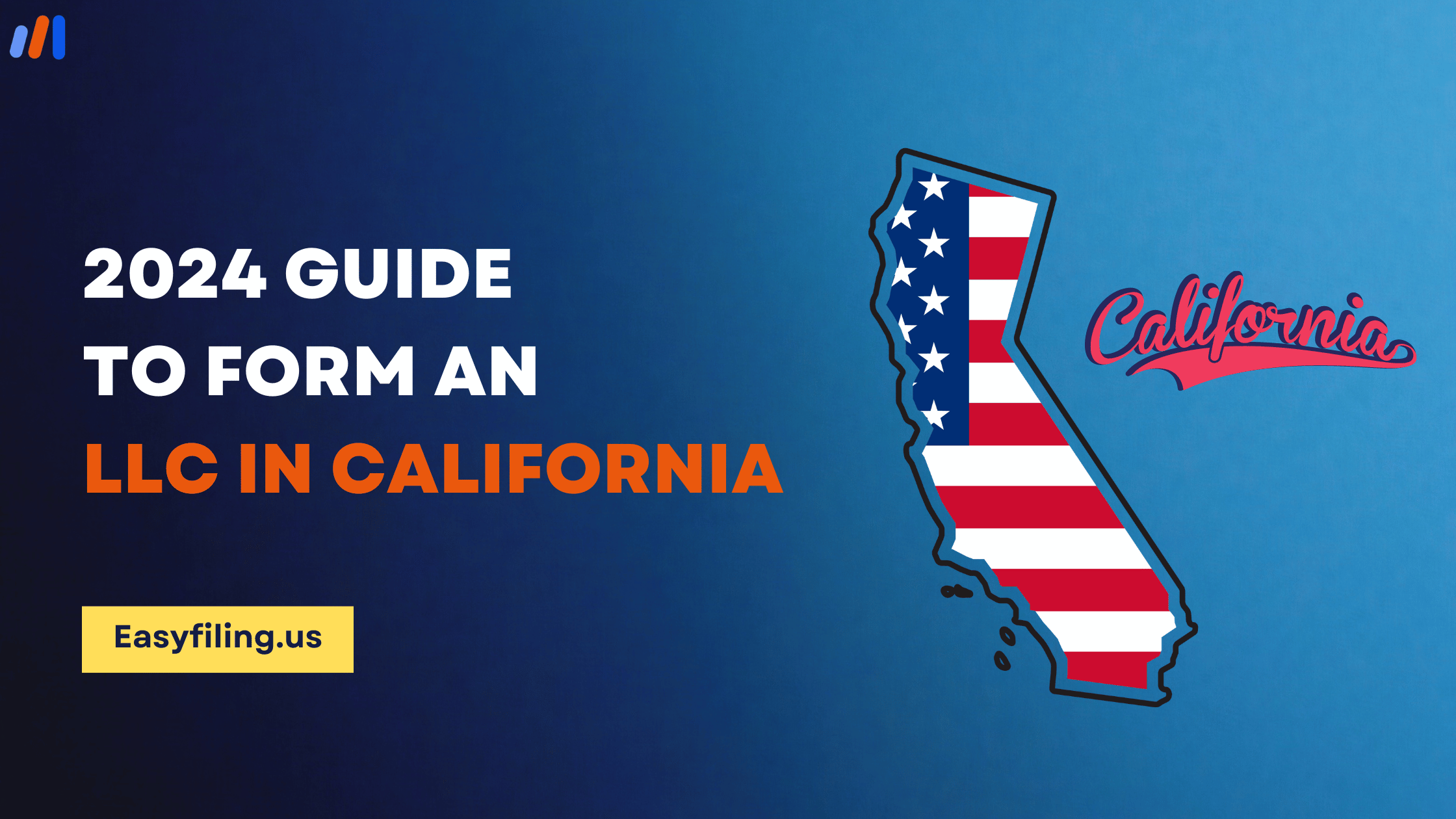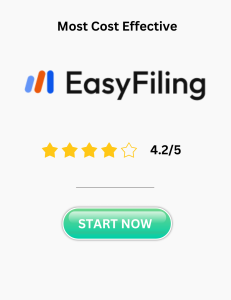Are you thinking about starting a business in the Golden State? The most suitable route to follow could be creating a Limited Liability Company (LLC). Such is the rise of an LLC that incorporates the robust legal protection that is typical of corporations and the flexibility that comes with partnerships, thus making entrepreneurs and small business owners choose it more frequently.
This guide explains the detailed process to form an LLC in California. This ensures that your start-up venture begins well and provides you with the knowledge necessary to navigate through the complexities of forming a company.
Why Choose an LLC in California?
Limited Liability: In case of lawsuits or debts, an LLC safeguards your assets from business debts and liabilities meaning your savings, home, etc are protected.
Tax Flexibility: Under LLCs, you can decide how to tax your business either as a sole proprietorship, partnership, or corporation tailoring its tax obligations to meet your needs.
Operational Simplicity: Compared to corporations, LLCs have fewer formalities thereby allowing management flexibility by letting you structure operations based on how you prefer them done.
Credibility: Forming an LLC increases credibility for businesses thereby attracting customers, suppliers, and potential investors towards them.
Ease of Formation: For new businessmen, establishing an LLC is often easier and faster than incorporating a corporation hence accessible.
Step-by-Step Process to Form an LLC in California
Step 1: Come up with a Unique Name for Your LLC
Legal Requirements: Your business name should contain “Limited Liability Company” or its abbreviation such as “LLC” or “L.L.C.” This requirement allows customers and clients to know what kind of company it is legally speaking.
Name Availability: Before making any commitments on name availability check if already been taken by doing research at California’s Secretary of State website. It is important so as not to create any issues later on down the line related to this matter legally speaking
Step 2: Designate Registered Agent
Role of a Registered Agent: A registered agent can be a person or a business entity that is responsible for receiving legal documents such as lawsuits and official government correspondence on your LLC’s behalf so that you don’t miss any legal notices.
Requirements: The registered agent must have a physical address in California and be available during standard business hours to ensure they can receive and respond to any legal communications quickly
Step 3: Submit Articles of Organization
Form Required: You will need to file Form LLC-1 with California’s Secretary of State to create an LLC. This is a crucial step that makes your business legally recognized.
Details Needed:
- LLC’s name
- Business address
- Registered agent’s information
Filing Fee: A nonrefundable filing fee of $70 must accompany the form. Remember to keep this filing receipt because it will serve as evidence of formation.
Step 4: Establish an Operating Agreement
Purpose: An operating agreement outlines the management structure and operational guidelines of your LLC. It serves as the foundational document that governs how the business will operate.
Importance: Although there is no law in California requiring an operating agreement for LLCs, it is highly recommended. By doing this, it prevents member disputes while also ensuring everyone knows their role, thereby cultivating collaboration among members better.
Step 5: Get an Employer Identification Number (EIN)
Why You Need It: An Employer Identification Number (EIN) is required for many business activities such as;
- It is used for tax purposes and identifies the business entity to the IRS
- Opening a business bank account that distinguishes between personal and company financials
- Payroll/accounting, when hiring employees the EIN becomes necessary.
How to Apply: You can apply for your EIN at no cost via the IRS official website. The application process is simple, and you will receive your number right away upon completion.
Step 6: Meet Ongoing Requirements in California
Biennial Statement of Information (Form LLC-12): This form must be filed every two years to keep the information about your business up-to-date. This ensures that the state has current information regarding the operations of your LLC.
Annual Franchise Tax: $800 each year is what California LLCs must pay as their annual franchise tax. Regardless of whether your business is profitable or not, you have to prepare for this cost.
Additional Considerations
Understanding California’s Tax Landscape
Franchise Tax Board: It is important to realize that there are both state and federal tax obligations; failure to fulfill these requirements can result in penalties or additional fees.
State Sales Tax: In case you deal with goods sales, seller’s permit registration will be required for collecting sales taxes from your customers. This fact is necessary if you run a retail shop or an online store in California.
Legal and Compliance Support
Consult a Professional: For complex business formations and complying with regulations set by the state, it would be prudent to hire either a business lawyer or accountant who understands what needs to be done about your situation.
Use Online Services: Filing procedures can be simplified and additional resources provided through some websites that help keep track of your limited liability company effectively.
Types of LLCs in California
Single-Member LLC: This type of LLC has only one owner. Business owners’ liabilities are protected while profits and losses are accounted for on the personal tax returns filed by these individuals.
Multi-Member LLC: Likewise, multiple people own this type of LLP, which offers pass-through taxation where any members can benefit from this but keep their assets separate from debts incurred during their business operation.
Professional LLC (PLLC): A PLLC functions exactly as a normal LLC when providing liability protection but adheres strictly to the rules governing professional services.
Series LLC: A way around this involves using a series structure within one main LCC; all these series shall have distinct asset basis and liability provisions thus making it a much cheaper option for companies involved in numerous businesses.
Foreign LLC: Any Limited Liability Company started in other states but operates within California should hail back as a Foreign Limited Liability Company since it is compelled to play by California laws and still enjoy benefits from its original state of formation.
LLC Alternative Business Structures in California
In California, there are several alternative business structures to Limited Liability Companies (LLCs):
Sole Proprietorship: One person owns and operates the simplest form of a business. The individual owner is held personally responsible for all debts and other obligations incurred by the firm.
Partnership: This is where two or more people share ownership of a business. Some partners may be fully liable in general partnerships while others have limited liability in limited partnerships.
Corporation: This is an independent legal entity that gives protection against limited liability to shareholders. C-corporations and S-corporations are the two types of corporations with different tax consequences.
Limited Partnership (LP): An LP has at least one general partner with unlimited liability and one or more limited partners whose liability is restricted only up to their investments in such partnership.
Limited Liability Partnership (LLP): LLPs protect partners from personal responsibility for certain liabilities of the partnership thus they are often preferred by professionals such as lawyers and accountants.
Professional Corporation (PC): For example, doctors or lawyers may incorporate this type of corporation that provides limited liability but is subject to particular regulations.
Every structure has its pros and cons based on what exactly a company owner wants out of his/her enterprise.
Conclusion
As many startups and small businesses see it, forming an LLC in California is a clever strategy. It not only offers critical legal protection but also has the operational flexibility that is needed for doing well in the present-day competitive landscape. You will position your business for long-term success by following these detailed steps and staying informed regarding state requirements.
Ready to take the next step? Start establishing your LLC today with Easyfiling and lay the groundwork for your business’s prosperous future in California! Take this journey with confidence that you are creating a firm footing for your entrepreneurial aspirations.
Frequently Asked Questions (FAQs)
What is an LLC?
An LLC, or Limited Liability Company, is a business organization that protects its owners from personal liability for its debts and claims. This means that if the LLC has any legal problems their owners’ assets are generally protected.
Do I need an operating agreement for my LLC?
While California does not require the filing of an operating agreement it is highly suggested. It outlines how management works, who owns what percentages, and easily solves problems among members.
How long does it take to form an LLC in California?
This can vary depending on processing time. It usually takes about 1-2 weeks if you file online, but this may take longer than expected during peak times or if additional information is needed.
What ongoing requirements are there for maintaining an LLC in California?
California-based LLCs should submit an annual Statement of Information and pay the minimum franchise tax annually. Also, it is vital to maintain accurate records and ensure compliance with any local business licenses or permits.
Can I manage my LLC myself or do I need to hire a professional?
You can operate your own Limited Liability Company; however many go for professionals like attorneys or accountants to give them law-compliant services as well as handling complex issues especially when running a business.
File Your LLC Today
25$ off with a coupon
Lock in EasyFiling's transparent rates and get lifetime compliance support at no extra cost.
Get Started Now










